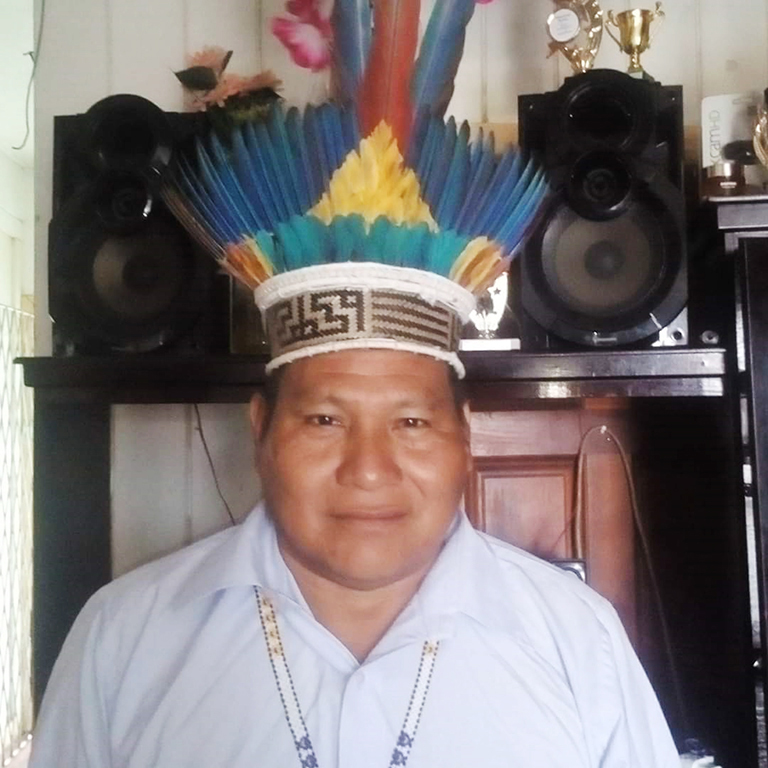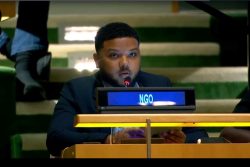After managing to avoid a single case of COVID-19 for over a year, the remote community of Masakenari, in Region Nine is now grappling with an outbreak, which is believed to be linked to residents travelling outside of the community to source needed food and cleaning supplies.
During the latter part of last year, Toshao Paul Chekema made constant appeals for food supplies to be brought into the community so residents would not have to risk travelling to the more urbanised communities in Region Nine.
With little assistance from Regional and Central Government officials, the urgent need for food and cleaning supplies eventually forced residents to make the dreaded trip to Lethem. Since then Masakenari has already recorded positive cases, including one death.
The Ministry of Health (MoH) on Sunday reported that a 60-year-old man from Region Nine was the country’s 325th COVID-19 fatality. The deceased has been identified as Yowkari Mawasha, a former Hinterland Affairs Officer who was attached to the Ministry of Amerindian Affairs.
During an interview with Stabroek News yesterday, the deceased’s son, Brian, revealed that his father may have contracted the virus while in Lethem or in one of the communities along the way to Masakenari that are affected by COVID-19.
He said that his father fell ill shortly after arriving back in Masakenari and complained of loss of appetite and shortness of breath, and also suffered from vomiting and fever. Given that these symptoms are associated with COVID-19, Mawasha was subject to swabbing and the results of his test indicated that he was infected with the virus.
Brian said that his father’s condition deteriorated quickly despite him not having any underlying ailments with the exception of occasional hypertension. Given the severity of his condition, plans were in place to transport Mawasha to a hospital but this was too late as he died before this could’ve been done.
According to Brian, his father died during the wee hours of Sunday morning.
Prior to his death, multiple persons in the community had already tested positive for the virus, including the Toshao, who is currently in isolation. Based on information gathered, a group of residents travelled to Lethem and the Coast and it was upon their return that the virus’ presence was detected in the community.
Several of those persons are currently isolated in Lethem, while others remain in Masakenari. This was confirmed by Regional Chairman Bryan Allicock, who told Stabroek News that about seven persons are currently in isolation in Lethem. He said they are expected to be discharged soon with more than several days passing after testing positive. Contact tracing led to a swabbing exercise in Masakenari and it was then that Yowkari Mawasha tested positive.
Allicock revealed that a medical team was recently dispatched to the community to conduct more swabbing but the team is yet to return despite it being a one-day outreach.
Located hundreds of miles from the nearest urban community, Masakenari had been identified by the Civil Defence Commission (CDC) as one of the indigenous communities most heavily impacted by the COVID-19 pandemic in 2020.
During an interview last year, Director General of the CDC Lieutenant Colonel Kester Craig explained that the remoteness of the community meant that residents would not have access to emergency support when needed and would have to travel to Lethem for food supplies and other necessary items.
Masakenari is the home to more than 200 Wai-Wais and its Toshao Chekema told Stabroek News that the residents are aware of the coronavirus threat they are facing, especially from Brazil as the community is located close to the Brazilian border. Given the location of the community, the Toshao said they would rarely see any strangers from other parts of the country in their community. Normally, he added, persons would go into the community to hold religious gatherings but since Guyana confirmed its first case of coronavirus, no one has visited the community. However, he said the need for food supplies has forced residents to leave even though many communities in the South Rupununi are presently battling their own outbreak.
In a recent interview with this newspaper, Chekema said that prior to COVID-19, villagers were able to source necessary items from Brazil or Lethem but since the virus has been widespread, villagers have avoided travelling. He had said that the village council has taken up the task of stocking the village shop with essential items but with many persons currently unemployed, it has become difficult for them to pay for items.
Now that the community is battling COVID-19, Chekema said, it would become more difficult for persons to travel for food items, especially considering that on the way to Lethem they would have to pass a number of checkpoints now that communities have imposed additional restrictions to protect themselves. He subsequently reiterated his pleas for assistance, noting that there is little to no medical supplies in the community which can help with patients’ recovery.
The nearest hospital is located in Aishalton and the trip via land presents a major issue, he said.








